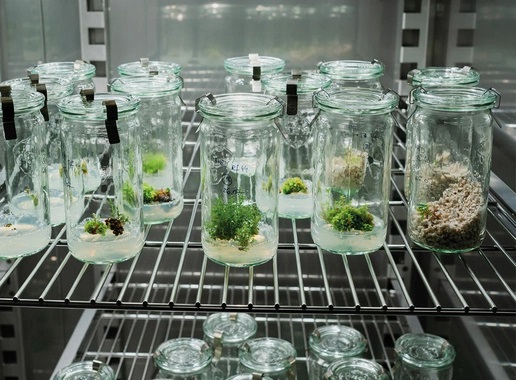Researchers from the Department of Pharmaceutical Biology and Biotechnology at Wrocław University of Medical Sciences (UMW) will conduct research on plants that produce chemical substances and thus defend themselves against harmful environmental influences. This is part of an international research project conducted jointly with the Department of Pharmaceutical Biology at the German Freie Universität Berlin.
“Plants threatened by attack from other organisms cannot escape or relocate when they find themselves in unfavourable environmental conditions. They must therefore defend themselves passively with physical barriers: thorns, thickened bark, cuticle, resins, etc. against herbivores, parasites or pathogenic microorganisms. However, the most „intelligent” weapons, developed over thousands of years of coevolution, are the plant chemicals that make the plant body (or parts of it) poisonous, unpalatable, indigestible, or repellent”, explains the head of the research team, Professor Adam Matkowski.
UMW scientists are looking at two common plants from the clove family, which is unique in the plant world in terms of chemical defence. The lethal mixtures produced by clove plants contain, on the one hand, small-molecule substances called saponins (natural detergents) and, on the other hand, rare and specific toxic proteins, so-called ribosome-inactivating proteins (RIPs), capable of killing the cells of other organisms by damaging the protein production machinery. In this way, they can kill any cell.
The study is planned for three years, with funding from the National Science Centre of nearly PLN 1 million. The Wrocław part is purely experimental; the results of the UMW scientists’ research will serve the German centre as a basis for checking potential therapeutic effects.
Arkadiusz Słomczyński





